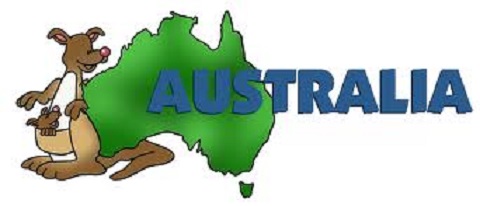Labor voter
Senior Member
    Offline
Offline

Australian Politics
Posts: 302
Gender: 
|
CONCERN among Liberal MPs that Tony Abbott might call an early federal election was one of the factors that helped make Malcolm Turnbull prime minister.
There were suspicions that the beleaguered Abbott was considering a double dissolution as a way of heading off a leadership challenge.
Given the Coalition’s disastrous opinion poll ratings, it would have been folly. The possibility hastened the challenge and boosted Turnbull’s support.
Six weeks later, though, there is serious talk of the new prime minister going to the polls early.
And this time it is Labor MPs who dread the prospect.
Turnbull’s popularity has sent the Coalition’s electoral support soaring. Labor, for a while at least, is down and out.
Few at senior levels in the Opposition doubt that Turnbull would win an early election and win it well.
Turnbull’s plan, when he moved into the prime minister’s office, was to let Parliament run its full term and hold an election in the second half of next year.
That is still the position expressed publicly by ministers.
“We’re going to be having a full term. We’ve got lots to do,” Assistant Treasurer Kelly O’Dwyer said yesterday.
But behind the scenes they must be — and certainly should be — giving thought to a pre-Budget election.
Labor frontbencher Anthony Albanese made sense yesterday when he nominated March 19 as a possible date.
It is not primarily about popularity. To borrow Bill Clinton’s old slogan, it’s the economy, stupid! Economic conditions are becoming so difficult that the nation can ill-afford an election Budget in May.
Tough decisions will be required, not sweeteners to attract votes. Getting an election out of the way first would make it easier for the Government to take necessary Budget repair measures.
Turnbull has adopted a positive, optimistic tone about the economy.
He has abandoned gloom and doom in favour of building confidence.
“This is a time of great opportunity,” is his message.
But the reality is that he and Treasurer Scott Morrison face major challenges.
Australians clearly feel more upbeat under new leadership, but the economic problems that caused concern under Abbott and Joe Hockey are still there.
China’s economic growth is slowing. People in business worry about the sluggish US recovery. Commodity prices keep falling.
Australia’s company profits are down. Wages growth is low. Sharemarkets are weak.
The Australian newspaper warned yesterday that the nation’s AAA credit rating is at risk if progress is not made in reducing the deficit.
Yet Government revenues continue to fall faster than Treasury expected, while spending has not been significantly restrained.
Action should not be delayed for another year.
There will have to be a new round of savings. Presumably lessons have been learned from the botched 2014 Budget, but there will still be losers.
One lesson that should definitely have been learned from 2014 is the need to avoid unpleasant surprises in the Budget. Abbott and Hockey failed to prepare the ground for their Budget nasties.
Holding an election first, and being upfront about problems and possible solutions, would give Turnbull a way to get voters ready for whatever needs to be done.
It would free Turnbull from promises made by his predecessor which have hampered the Budget repair process.
Assuming he wins, it would also provide him with an indisputable mandate, making it difficult for the Senate — or the Opposition — to play obstructionist games.
The alternative view is that Turnbull should produce a Budget first to show he has substance on economic policy.
So far, taking advantage of the national sense of relief stemming from Abbott’s departure, Turnbull has had to make few specific policy decisions. That won’t continue, however. For the moment he can get away with generalities such as yesterday’s statement that GST changes are “clearly in the mix”.
But eventually he will have to say how.
There are reports that a rise in the GST rate to 12½ per cent or even 15 per cent is on the cards, as well as extending coverage to fresh food and health services.
When that sort of detail starts to emerge, battle will really be joined.
And, irrespective of election timing, the economy will be the battlefield.
By LAURIE OAKES, NINE NETWORK POLITICAL EDITOR
heraldsun.com.au/news/opinion/laurie-oakes/tough-times-point-to-malcolm-turnbull
-calling-an-election-early/news-story/cefca1b00e303da4a4a3c95625e9e533
|

 Forum
Forum

 Home
Home 

 Album
Album 

 Help
Help

 Search
Search

 Recent
Recent 

 Rules
Rules 

 Login
Login

 Register
Register





 Pages: 1
Pages: 1 

